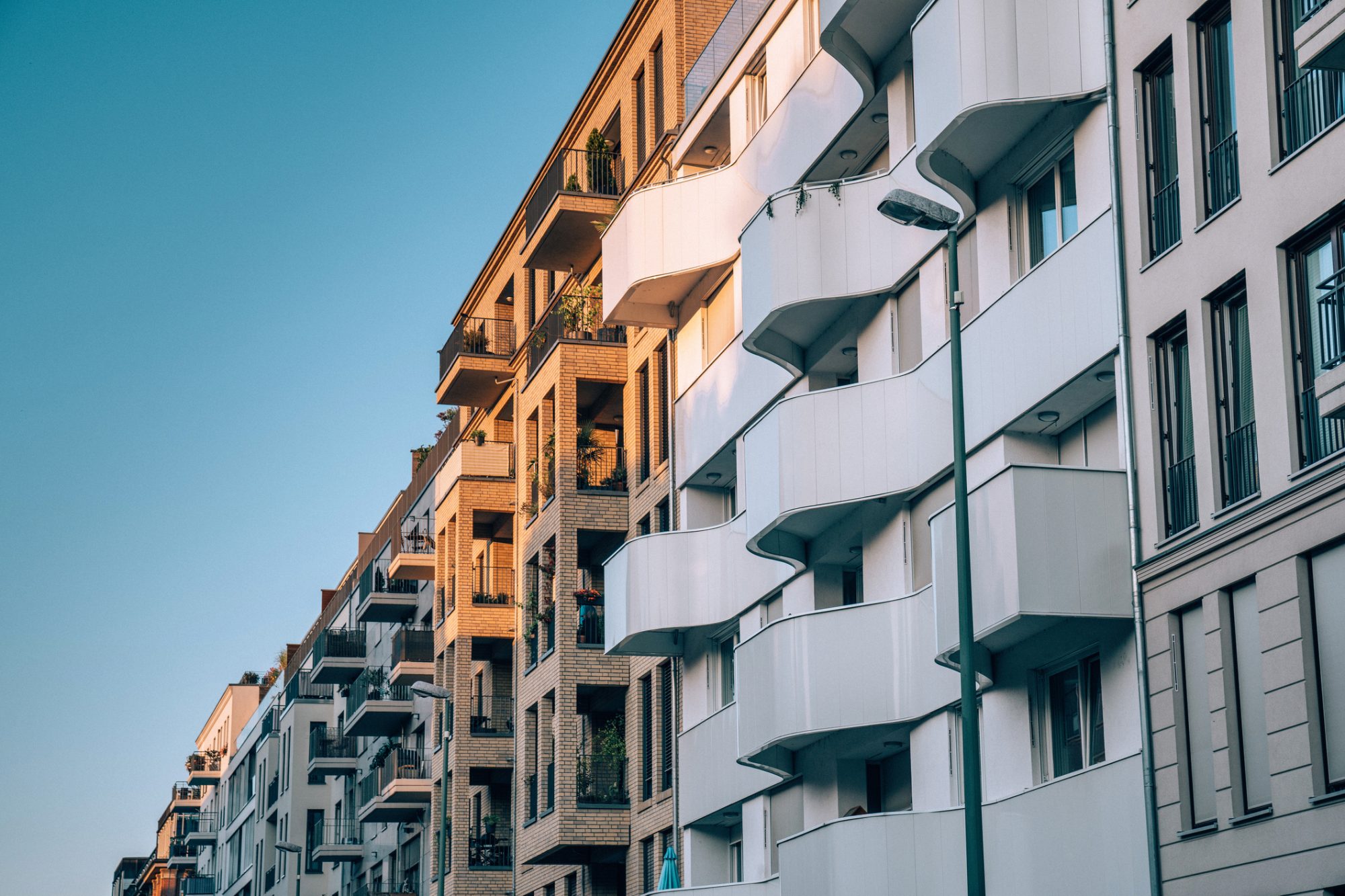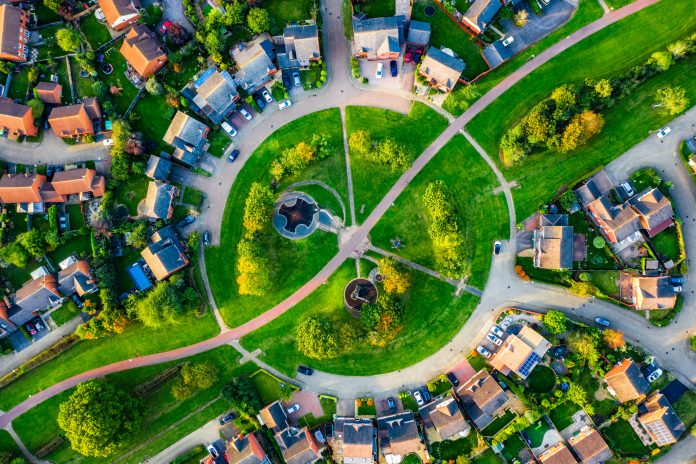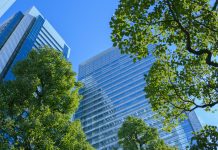As the demand for eco-friendly solutions continues to grow, landlords face the challenge of looking for ways to change homes to become sustainable properties
To stay on top of the rental housing competition, landlords need to make sustainable properties that are more environmentally friendly. Designed and managed with the environment in mind, helping rental units stand out, and ultimately securing income.
To reduce the environmental impact of their properties, eco-friendly landlords prioritize energy efficiency, water conservation, and other green initiatives. This blog post will look at eight green ways landlords can make their properties more sustainable and reduce their environmental impact.
Why should your rental properties be sustainable?
Striving for sustainability is a must when you have a rental real estate business since it affords you financial, regulatory, and reputational benefits. Practising green rental property management provides you with a venture that offers the market products that are generally more comfortable and healthier to live in.
Financial benefits
Sustainable properties can save money in the long run by lowering energy and water consumption, benefiting both landlords and tenants. With an increasing number of renters becoming environmentally conscious, sustainable properties can attract more tenants who are willing to pay a premium for eco-friendly residences. Additionally, sustainability addresses financial barriers that prevent the proper maintenance of the property. Since sustainable properties come with more modern features and amenities, the property becomes easier to maintain, resulting in lower costs and a greater return on investment for the landlord.
Regulatory benefits
Running a residential rental business entails strict compliance with national and local government policies. As these bodies of authority continue to enforce more sustainability regulations and standards, the potential fines and costs of legal issues for failing to do so will shoot up consequently. By making your rental properties more sustainable, you can protect your business from governing bodies and keep it alive.
Reputational benefits
Sustainable properties can help a landlord’s reputation as a socially responsible and environmentally conscious landlord. Since environmentally friendly homes are often modernized and incorporated with streamlined features and amenities that offer convenience, tenants often benefit from an increased quality of life. This helps attract more tenants and increases tenant retention.
Let Doorloop’s comprehensive software feature help you attain your tenant retention goals and overall rental business objectives. We offer Property Management Software that is made easy for your exact needs.

8 tips to make your rental property sustainable
Now that you understand why sustainability is critical for your rental business, you should begin planning how you will implement necessary eco-friendly improvements. Your sustainability plan should ultimately reduce your property’s energy costs and minimize its carbon footprint. Here are some suggestions for greening your rental properties:
-
Use low-VOC paint
Paint physically covers almost every corner of your real estate property, thus, majorly contributing to the overall environmental impact of your unit. Using low-VOC paint is the first step in making your property more sustainable. VOC stands for Volatile Organic Compounds, which are emitted by most traditional paints, polluting indoor air quality. This makes breathing inside the home harmful to both human and environmental health.
Low-VOC paints do not emit these harmful compounds and are an excellent way for landlords to participate in green property management. Additionally, traditional paints necessitate multiple coats, taking more time and money. Low-VOC paints, on the other hand, are thicker and require fewer coats, which conserves essential resources.
2. Install energy-efficient appliances
Sustainable properties can’t still be fixed with outdated appliances.
Replacing old, inefficient appliances with new energy-saving models is a surefire way to reduce tenants’ electricity and water bills while minimizing emissions from power plants. Upgrade to models with the Energy Star label which are confirmed to meet certain efficiency standards established by the European Commission and other international energy departments not only to help you save money but also to benefit from high ROIs.
Landlords who want to go the extra mile may also consider solar-powered appliances or other environmentally friendly models. “Solar-powered models are becoming increasingly popular because they often do not require any additional wiring or installation,” said Sarah Jameson, Vice president & marketing director of Green Building Elements. These appliances are designed to run on solar energy, resulting in lower electricity costs for tenants and a more environmentally friendly solution for landlords.
Switching to energy-efficient appliances not only helps to reduce environmental impact, but it can also contribute to a healthier living environment and increased tenant satisfaction—two significant advantages of sustainable landlord practices!
3. Use sustainable building materials
Using sustainable building materials is an important step landlords can take to make their properties more environmentally friendly. Wood, bamboo, and recycled plastics are all the favorite sustainable and energy-efficient building materials typically used to build walls, roofs, framing, and flooring due to their strength, durability, and renewability.
Another excellent way to use sustainable materials in construction is to incorporate recycled plastic products and blended cement materials. These materials use less energy to manufacture than new construction products, making them a more environmentally friendly option. Moreover, blended cement contains supplementary cementitious matter that delivers the same quality and durability as traditional cement during construction, only eco-friendlier.
Using sustainable building materials will not only help reduce the environmental footprint of the rental property, but it may also save landlords money in the long run due to the cost-effectiveness of these materials.
4. Implement water conservation measures
Water conservation is an important aspect of environmentally friendly property management and should be a top priority for any landlord looking to create green, sustainable properties ready for rental. Installing low-flow fixtures, such as low-flow showerheads, toilets, faucets, dishwashers, and water-consuming appliances, is one of the most effective ways to reduce water usage. Some municipalities will even provide rebates or incentives to eco-friendly landlords.
Landlords can also implement simple water conservation measures such as installing timers or shutoff valves on outdoor faucets and irrigation systems, as well as water-saving technologies like greywater and rainwater harvesting systems. Jameson says “Greywater systems collect and recycle wastewater from sinks, showers, and washing machines, allowing it to be reused in landscape irrigation and other applications. Rainwater harvesting systems collect and store rainwater for irrigation, toilets, and other uses.”
These systems can significantly reduce water usage and allow landlords to demonstrate their commitment to environmentally friendly landlord practices.
5. Invest in green insulation
Installing the right insulation matters because the more effective it is, the lesser appliances will be used resulting in a smaller carbon footprint. Using green insulation materials such as those made from shredded denim, hemp, or sheep’s wool can not only reduce energy costs but also help the environment by supporting recycling. This is vital for sustainability because roughly 44% of every household’s overall energy consumption accounts for the use of indoor heating systems alone.
By insulating your rental property’s ceilings, walls, doors, windows, and even the crawl spaces and attic, you ensure that it is protected from cold weather damage while defending its residents against the health hazards of harsh temperatures. “A well-insulated house can also save energy in the summer because adequate insulation should keep cold air in as well as warm air,” according to Jameson. As a result, your tenants will be able to turn off the air conditioner earlier and less frequently.
6. Switch to electric boilers
The future is going electric and rental property owners must learn to keep up or they’ll fall behind and find themselves with even greater energy costs. Ditching gas boilers for electric ones modernizes the home and keeps it emission-free which minimizes the property’s contribution to air pollution or the greenhouse effect.
Unlike gas boilers, electric boilers also do not issue carbon dioxide, nitrogen oxides, and other pollutants that can be harmful to both human health and the environment. They convert all of the electrical energy they consume into heat and eliminate energy waste, making them more efficient and cost-effective over time.
To maximize savings on energy costs, landlords must use electric boilers in conjunction with renewable energy systems to reduce overall carbon emissions and aid in climate change mitigation or they may end up powering the entire property with skyrocket-high-priced electrical energy.
7. Educate tenants on recycling
Maintaining that the rental property is as sustainable as possible requires not only the landlord’s but also the tenants’ efforts. Landlords must maintain an ongoing dialogue with their tenants about what items can be recycled, where to recycle them, and why recycling is important. This will make tenants more aware of their environmental impact and more likely to engage in sustainable behavior.
Landlords can also inform their tenants about any local recycling programs that exist in the area. Furthermore, putting in place a system that makes recycling easier for tenants, such as providing designated bins or containers would effectively encourage tenants to recycle, assisting in the reduction of waste on the property.
This not only sets a good example for other landlords looking to make their properties more environmentally friendly, but it also contributes to a healthier and cleaner environment for everyone involved.
DoorLoop allows landlords and property managers to send secure messages to tenants anytime. Request a demo to help you manage your rental properties better and establish a professional direct point of communication with tenants.
8. Offer incentives for sustainable behavior
Incentives are an excellent way to motivate people to engage in environmentally friendly practices, and they can also be used to reduce operating costs. Incentives such as discounted rent for tenants who use green transportation or lower utility bills for those who conserve energy can benefit sustainable rental properties.
Landlords, for example, could offer a rent rebate if the tenant purchases energy-efficient appliances or hires a green contractor to maintain the property. This encourages tenants to take ownership of their properties and accept responsibility for their environmental impact.
This way, landlords can ensure that their properties are environmentally friendly while also lowering their operating costs by incentivizing sustainable behavior. This is a win-win situation for all parties involved, and it is an important step toward achieving long-term landlord objectives.
Sustainable properties benefit landlords and tenants
To summarize, making rental properties more environmentally friendly benefits both landlords and tenants. Landlords can save money on utility bills, attract environmentally conscious tenants, and contribute to a more sustainable future. Promoting sustainable practices will breed tenants who are reliable at making payments, allowing you to maximize rental income.
Setting a good example for others by hosting educational events and workshops on topics such as energy efficiency, water conservation, recycling, and composting will also better enable tenants and even neighbors to learn more about green practices and how to incorporate them into their daily lives, ultimately promoting sustainability throughout the whole community.
David Bitton is the co-founder & CMO of DoorLoop, a best-selling author, legal CLE speaker, and real estate investor. He is a five-time entrepreneur who has been surrounded by real estate his entire life, with a background as an investor, realtor, and community manager. He is also a best-selling author and legal CLE speaker.











